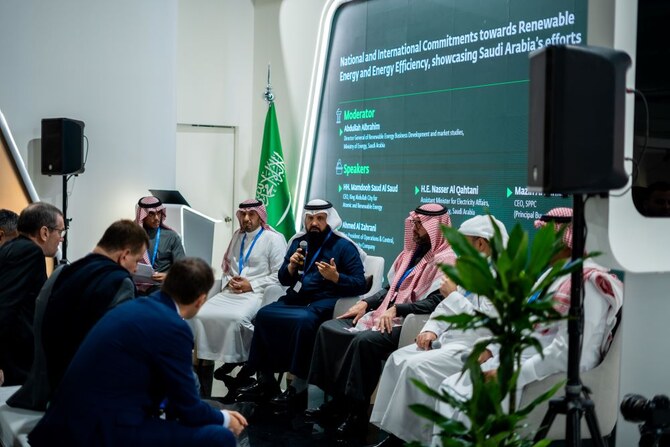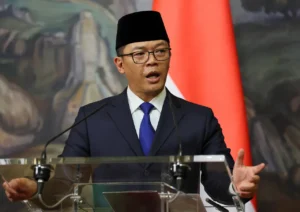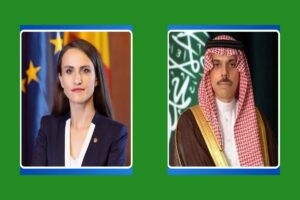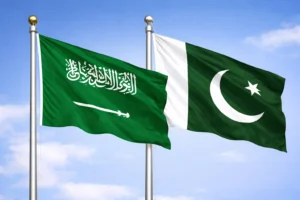Saudi Pavilion at COP29 Highlights Kingdom’s Leadership in Climate Solutions

Baku, The Gulf Observer: At COP29, the Saudi Pavilion has emerged as a focal point for collaboration and innovation, showcasing Saudi Arabia’s strong commitment to tackling climate change and advancing sustainable development goals. A series of insightful panel discussions and expert-led sessions at the pavilion have highlighted the Kingdom’s leading role in global climate action.
Energy leaders, policymakers, and professionals from across the globe convened at the pavilion, engaging in productive dialogues about cutting-edge climate solutions. Key discussions focused on Saudi Arabia’s ambitious climate initiatives and the importance of international collaboration.
One standout session, titled “The Role of International Standards in Addressing Climate Change,” explored how global frameworks can be adapted to meet national needs. Experts emphasized the necessity of aligning international standards to support effective climate action across different regions.
Another key discussion, “Advancing Innovative Carbon Utilization Technologies to Achieve Climate Ambitions,” centered on converting carbon dioxide into valuable products. Panelists highlighted the potential of carbon capture and utilization technologies to help achieve global decarbonization goals.
The future of hydrogen energy also took center stage, with Saudi Arabia reaffirming its commitment to reaching net-zero emissions by 2060. Renad Aldebasi, a carbon specialist at the Saudi Ministry of Energy, spoke to Arab News about the Kingdom’s Circular Carbon Economy program, which aims to reduce emissions through the four Rs: reduce, reuse, recycle, and remove. “Our world-class carbon capture and sequestration hub will scale up to capture 44 million tons of CO2 annually by 2035,” Aldebasi said.
Saudi leadership in energy efficiency and renewable energy was also on display. Nasser Al-Ghamdi, CEO of the Saudi Energy Efficiency Center, shared the Kingdom’s progress, including a 57% improvement in HVAC systems and a 28% improvement in transportation fuel economy since 2010. “By 2030, we aim to save the equivalent of 1 million barrels of oil daily,” Al-Ghamdi stated.
Abeer Alharbi, Senior Project Manager at the Ministry of Energy, highlighted the National Renewable Energy Program, which targets meeting 50% of electricity demand through renewables by 2030. With 6.2 GW already operational, Saudi Arabia is setting new global benchmarks in solar and wind energy development.
In addition to advancing climate solutions, Saudi Arabia has solidified key regional partnerships at COP29. The Kingdom signed a joint executive program with Azerbaijan, Kazakhstan, and Uzbekistan, focusing on renewable energy cooperation, power grid integration, and investment in clean energy projects. Saudi agreements with ACWA Power are driving progress in battery energy storage and offshore wind energy in the Caspian Sea region.
COP29 continues to provide a vital platform for Saudi Arabia to share its climate vision, underscoring its dedication to addressing the global climate crisis and leading by example in the transition to a sustainable future.


